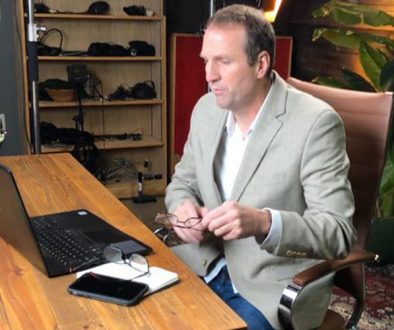5 Qualities of Supportive Relationships (AKA–5 Qualities Of A Good Corner-Man)
Robert Greene, NY Times best-selling author, expressed it well when he wrote all of life is a hologram all that we see in people is not real. It’s not quite as wonderful as FACEBOOK would have you believe. However, we have pulled the curtain back and we know the reality of life backstage. People are dealing with real deal problems and emotional distress is more the rule than the exception. There are worries about kids, worries about parents, worries about school, worries about work, and WORRIES ABOUT WORRY. Workloads are increasing and the fact we are always connected is adding to the problem. Technology has an interesting way of transforming life for the better and the worse simultaneously.
The good news is that if you find an appropriate perspective anxiety and stress can actually become a friend. Both can activate us into action and if kept in proper context the damage of chronic stress is minimal. There are many ways to effectively deal with stress and other emotional concerns. Having someone to talk to is a game changer.
HAVING A CORNER-MAN CAN MAKE ALL THE DIFFERENCE:
The term corner-man comes from boxing and signifies a very special relationship. The corner-man is a “coach or teammate assisting the fighter during the length of a bout”. In life’s terms this means that the corner-man is there to go through the turmoil with you and coach you through the “fight”. Please understand that a corner-man is not an easy find. We have identified 5 essential qualities of a corner-man. The more of these qualities an individual has the more productive the relationship will become.
- A good corner-man is supportive, accessible and present but doesn’t solve the problem for you: In boxing the corner-man remain outside the combat area during the fight but is in close proximity to the action. He provides assistance, advice, and instructions but doesn’t try to intervene in the action. A corner-man in boxing waits until the opportune time to provide support, usually between rounds. The same can be said for a corner-man in life. If your corner-man becomes overly involved (for example engages in enabling behavior) the support can become counterproductive and problematic. At the same time your corner-man in life needs to be accessible. For example, if it takes two weeks to get an appointment to see a therapist you need to find a new corner-man. You may keep your therapist, but you may want to get a corner-man.
- A good corner-man has some direct experience with the battle: In boxing a corner-man is almost always an ex-boxer, trainer, or coach. Rarely will someone just come in from the sidelines without the lived experience of the sport. The same can be said of a corner-man in life. Your corner-man doesn’t need to have identical experience to your current struggle, however, he should have some history of over-coming something. If he presents himself as void of past difficulties than I would run the other way. That would be the equivalent of having me as a boxing corner-man. Someone will get hurt real bad. It is very much an issue of experience versus theory and we encourage you to lean heavy on the experiential end.
- A good corner-man will provide individualized support and instruction: In boxing a corner-man will vary his approach according to the individual needs and characteristics of the boxer. A right handed boxer is not handled the same way as a left handed boxer. A “technician” is handled differently than a “brawler”. Rocky was handled in a different way than Apollo Creed. The same can be said of a corner-man in life. Unfortunately most “helpers” prefer to give rote instructions and a manual on life. They seem to maintain an attitude of “if it worked for me and/or I read it in a book than it will certainly work for you”. The essence of human motivation lies in the unique needs, values, and psychology of each individual person. A one-size fits all approach is destined to yield little positive return.
- Occasionally the corner-man has to perform “cut-man” duties: In boxing there will be times when the boxer’s eyes and face will swell due to getting repeatedly punched in the face. This can make it very hard to see the opponent. Sometimes in these circumstances the corner-man will need to “cut” the boxer to relieve the pressure and make it possible for the boxer to see again. Sometimes your corner-man in life will also need to say or do whatever is necessary for you to be able to see clearly. Your vision can become cloudy by repeating a behavior over and over or by a well-defined denial system (ie…getting punched in the face repeatedly). In these cases your corner-man in life may need to cause you temporary pain for long term gain.
- Finally, the corner-man is many times the one responsible for “throwing in the towel”: In boxing the corner-man usually holds the responsibility of throwing in the towel to signify the fight is over. This is done when the boxer is getting beaten to a point of danger. Throwing in the towel is usually not received well by the boxer. The fighter will naturally want to continue the fight and go on to the bitter ends. In life it can also be necessary to throw in the towel and get more intensive help. The best example is a person struggling with addiction. Sometimes the corner-man needs to pull the rip-cord and get the person off to rehab or more intensive help.
Stay tuned for more… Please follow me and subscribe to my blog. 



February 12, 2017 @ 10:29 pm
Reblogged this on RECOVERY CARTEL and commented:
Wanted to reblog this idea. Find a good cornerman or cornerwoman…cornerperson to support you through tough times…